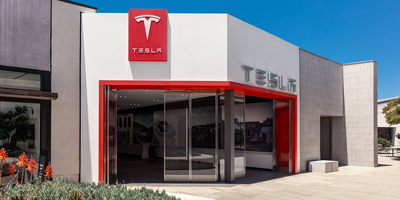The Delaware Supreme Court officially reversed an earlier decision that made it illegal for Tesla to have a store in the state to sell its electric cars. Now, Tesla can own its own "dealership" and move forward with its direct-to-consumer sales strategy in the state.
Tesla still can't sell its EVs in several U.S. states since it relies on direct sales. Essentially, lawmakers in the states that oppose Tesla sales believe the company would be breaking the law by owning its own dealerships and selling its own cars without a middle man. In such states, Tesla would have to agree to use a franchised dealership model to sell its electric vehicles.
In Delaware, a Superior Court decision denied Tesla the right to own its own dealership. The state's Department of Motor Vehicles used the law to reject Tesla's application to open a store in the state. The Delaware DMV rejected the application on the basis the law prohibits automakers from owning their own dealerships in the state. Tesla appealed the decision, which went to the Delaware Supreme Court, resulting in another win for the EV maker.
Like some other states, Delaware did, at one time, let Tesla have a gallery store where it could show off its EVs. However, even though people could see them, they weren't allowed to buy them. Nonetheless, Tesla moved forward with opening a service center in the state as well. People in Delaware who wanted to buy a Tesla, or who visited the gallery and voiced interest, could complete their purchase in a neighboring state or online.
Now that Delaware has a Tesla service center and Supercharger stations, the cars are becoming popular in the state. This came despite the workarounds necessary for completing a Tesla purchase.
As far as the Supreme Court case is concerned, the ruling pointed attention to similar rulings in other states that now allow Tesla sales via the direct sales model. It pushed back against car dealership associations and multiple arguments from the Delaware Department of Motor Vehicles.
The justices in the case ruled as follows, according to Delaware Business Now: “The General Assembly enacted the Franchise Act to address the disparity in bargaining power, which permitted new motor vehicle manufacturers to exert economic pressure over their franchises. Its definitions exclude Tesla and its direct sales model, where new electric cars are not sold through franchised dealers in Delaware."













